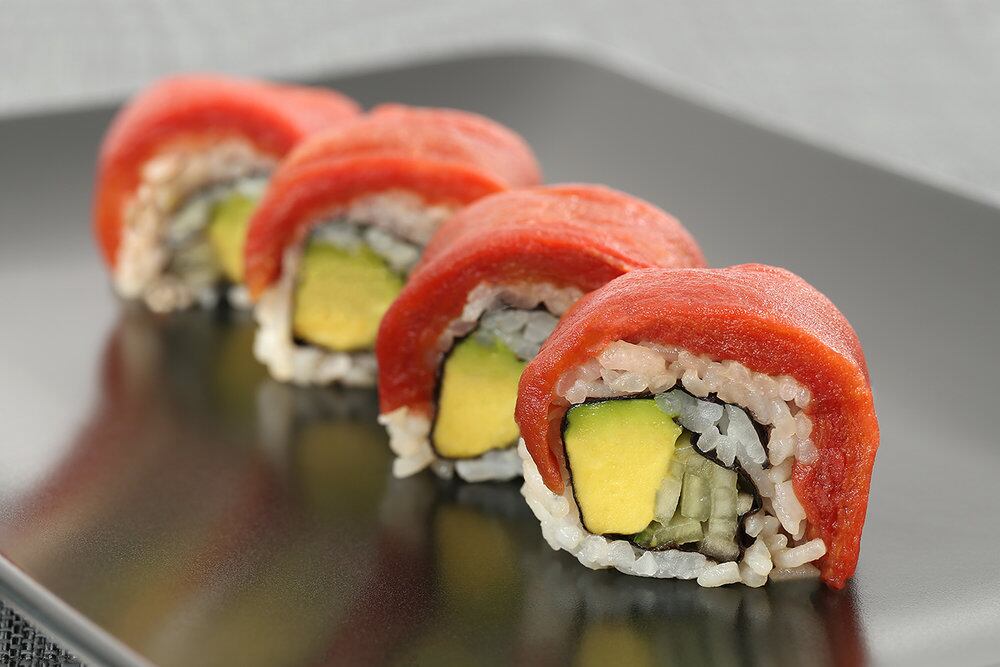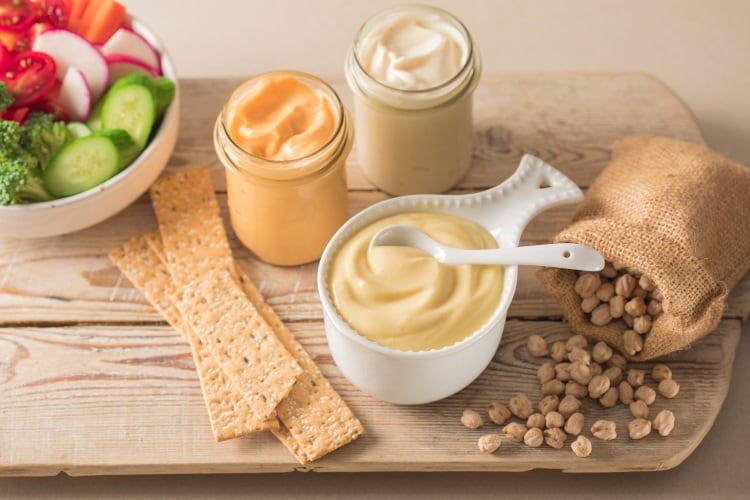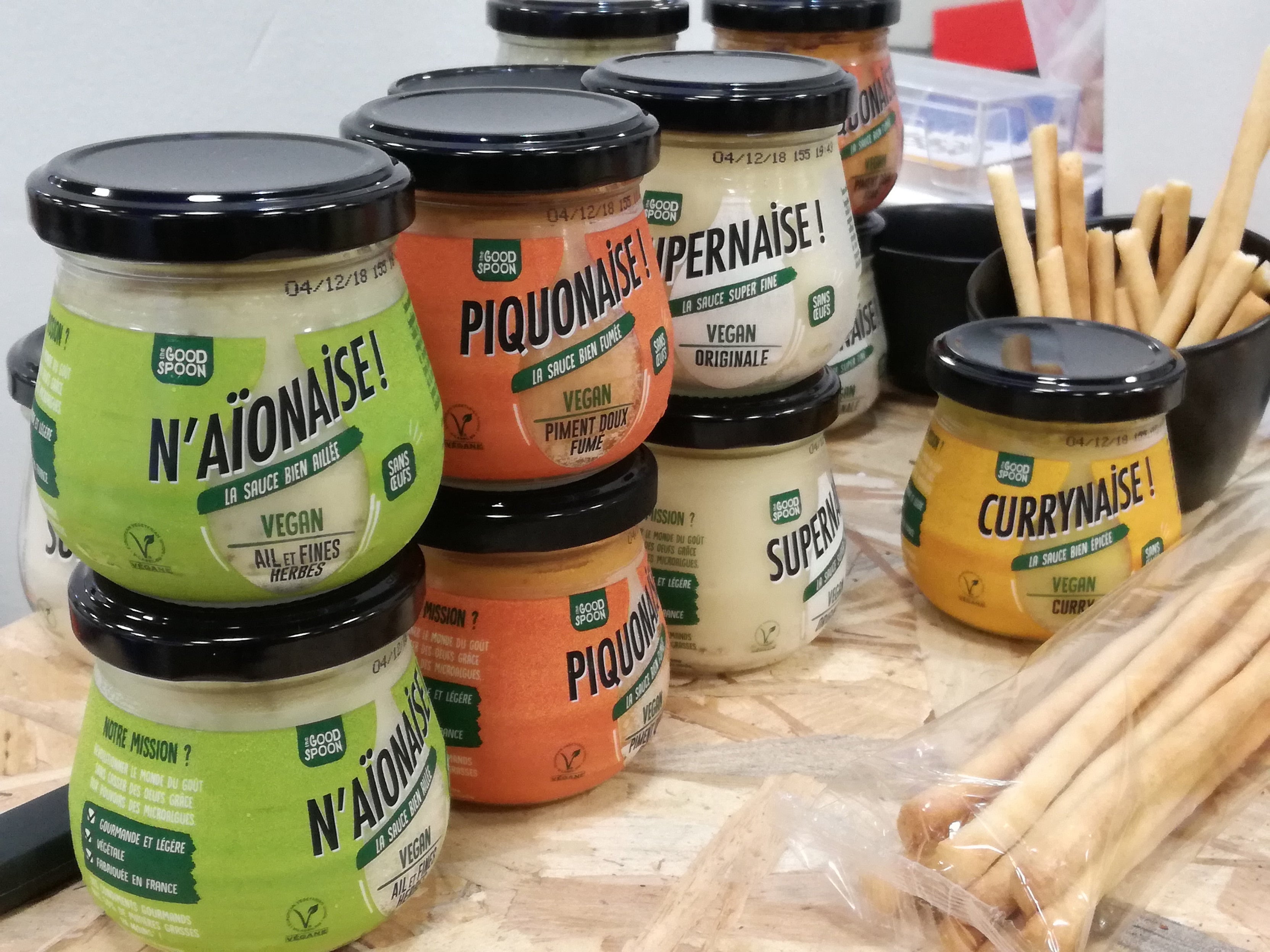The free-from foods movement continues to gain momentum across Europe – and products such as egg-free mayonnaise are becoming more accessible.
Analysts at Zion Market Research predict the egg replacement market is likely to increase by a compound annual growth rate of 5.8% through to 2025.
Europe held a ‘significant share’ of the global egg replacement market in 2018, owing to ‘huge demand’ for egg replacement ingredients in bread and bakery, Zion researchers observed. Moreover, high demand for sauces and mayonnaise in the region is expected to support egg-free growth in the years ahead.
What’s driving demand?
A growing number of people are cutting back their consumption of animal-based proteins across Europe and demand for egg-free products has been boosted by the plant-based movement. Emma Clifford, Mintel Associate Director of Food and Drink, told FoodNavigator that even though a ‘tiny proportion’ of the population follow a completely vegan diet, the appeal of vegan food extends beyond this.
A quarter of adults (26%) agree that plant-based vegetarian products are more appealing than vegetarian products made with eggs/dairy. This rises to 35% of under-35s, Mintel revealed.
“Vegan claims are optimal for those concerned with the environmental and ethical issues around animal farming,” Clifford observed. “There is a health halo with plant-based food. 'Vegan' and 'plant-based' claims are buzzwords, and because they encompass a lot more than simply 'egg-free' they also resonate a lot more - as seen with the launch of Hellman's Vegan Mayo for example.”
Clifford believes that plant-based language resonates with consumers more strongly than ‘egg-free’ statements, which draw attention to ‘what has been taken away’ and ‘can lead to concerns around what ingredients have been used as replacements’.
For consumers who don’t follow any particular diet but buy based on animal welfare claims – the most common reason for buying a product with any ethical certification – credentials such as ‘free-range’ are likely to hold ‘a lot of appeal’, she continued.
Leighton Jones, head of communications at Campden BRI, flagged growing demand for vegan options alongside the fact that egg is an allergen as the ‘two main drivers’ for the market.
‘Get the end product right’
While demand is strong, to fully unlock the potential of egg-free sales the industry needs to address concern over quality when eggs are removed from the recipe.
“Concerns over the taste and texture of egg-free products are the major barriers. Enjoyment is key for any food product so it will be vital to get the end product right,” Clifford said.
To this end, Camden BRI recently launched a research project on egg-free product development. The project will span bakery products, meat replacements, chilled desserts, confectionery and other products that use egg where plant-based alternatives are in demand.
Jones elaborated: “The work is in response to discussions with food companies who in turn are responding to consumer needs. Egg is a very versatile ingredient and performs a range of functions in products. Alternatives which replace some or all of these functionalities could help companies develop products which are suitable for consumers that fall into one or both of the [vegan or allergic] categories.”
Research efforts will focus on natural, allergen-free and functional alternatives. It is particularly challenging because egg is a unique multi-functional ingredient. Its uses include moisturisation, aeration, emulsification, enriching, colour and shine, and structure forming.
“No other single ingredient provides this level of functionality,” Jones stressed. “Egg-free recipes are few and far between, and for good reason. For many products, eggs are an indispensable ingredient.”
Brand strategies
Nandini Roy Choudhury, a senior consultant at Future Market Insights, suggested that the technical challenges associated with replacing eggs actually give big brands, with larger R&D capabilities, a competitive advantage in the sector when many have found themselves squeezed by private label and challenger brands.
“Large brands are winning share compared to small brands due to their superior product innovation strategies. Larger brands are easily available in hypermarkets and supermarkets as well as small convenience stores due to their strong distribution network. Also, products offered by popular brands are competitive in pricing as compared to small regional players," Choudbury told FoodNavigator.
Choudhury suggests four strategies to stand out in the expanding – but competitive – egg-free space: offering different packaging and formats; backing product launches with marketing spend; bringing new products flavours and varieties to market; and delivering on availability.
“With growing competition, market players should focus on a few key areas to differentiate their product in the market."




